Our project, ERT-PERM, funded by the Swiss Polar Institute, aimed to install long-term Autonomous Electrical Resistivity Tomography (A-ERT) Monitoring in diverse permafrost regions worldwide. It involved four field trips to different mountain and polar areas, including the Stockhorn mountain in the Swiss Alps, James Ross Island in Antarctica, Yukon in the Arctic, and Arabel Valley in Kyrgyzstan. Each field trip provided a unique opportunity to explore distinct permafrost regions in mountainous and polar environments.
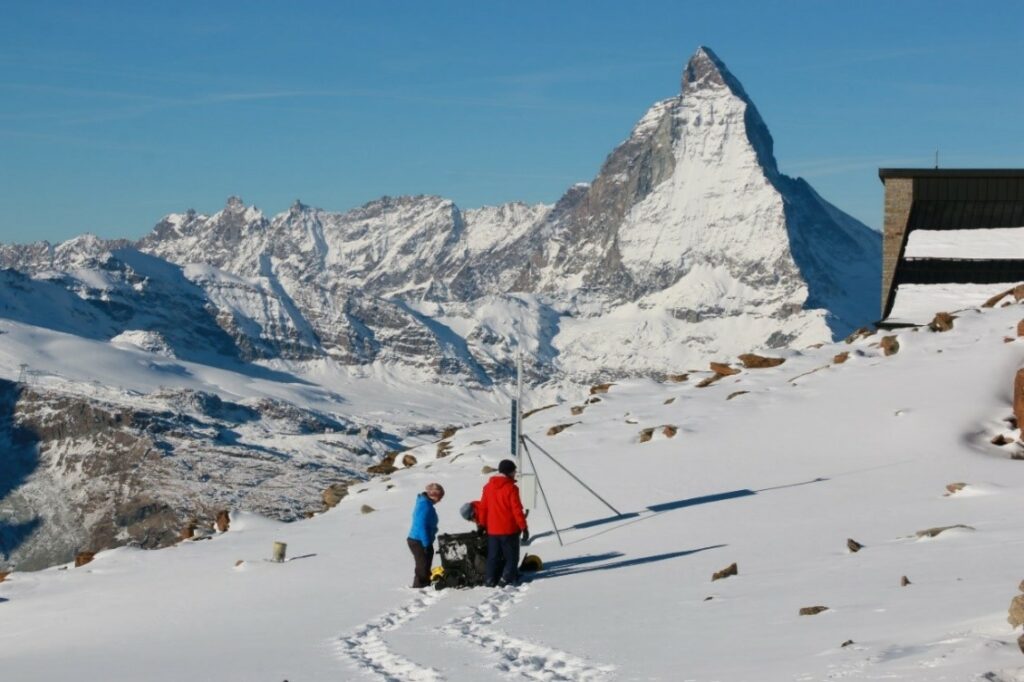
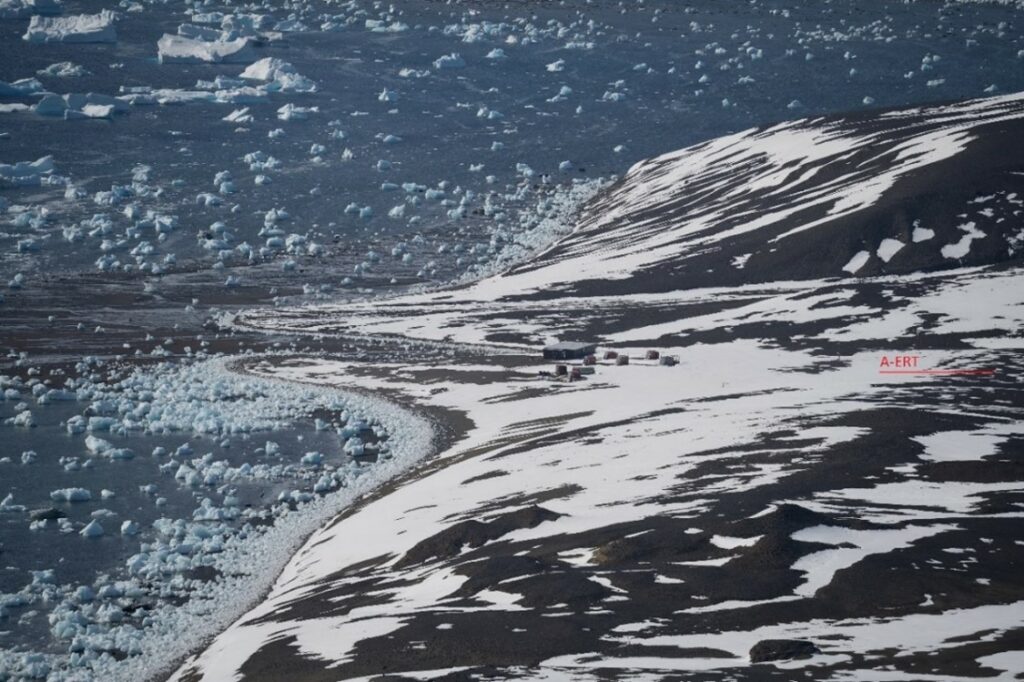
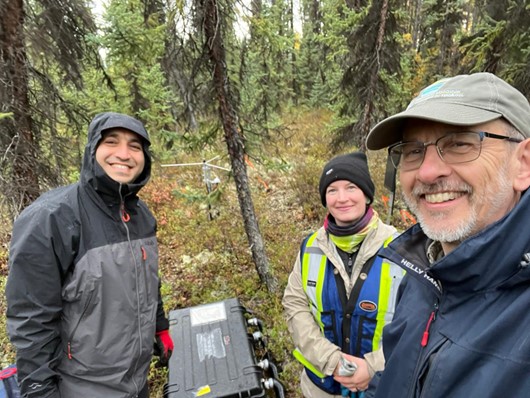
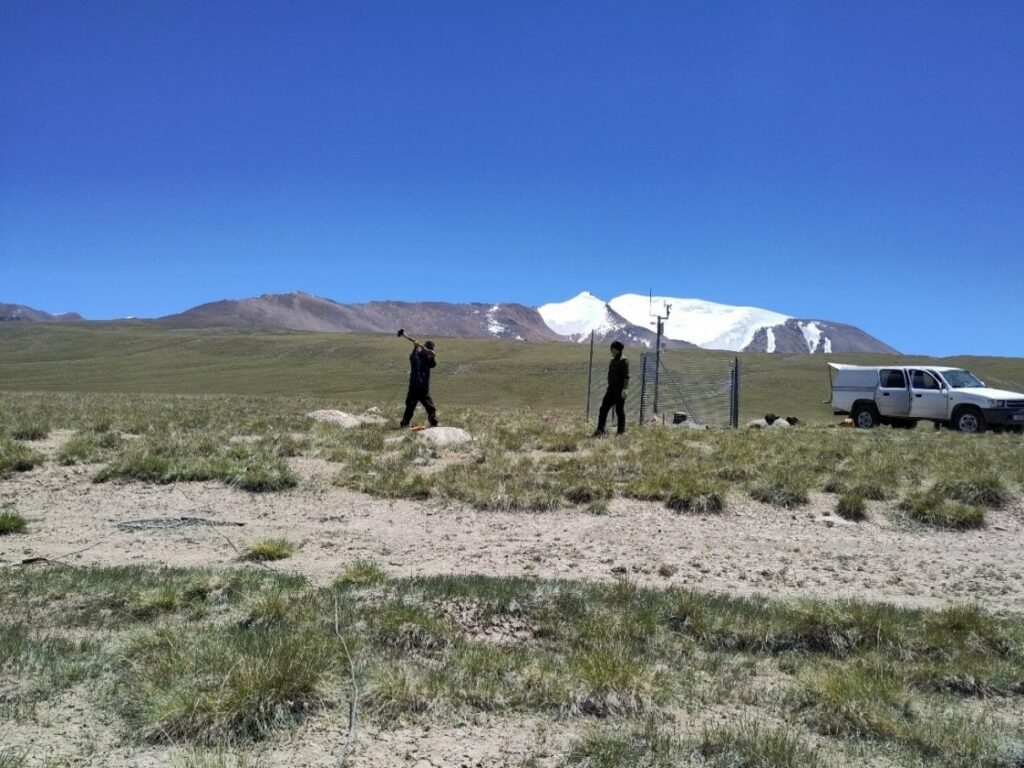
The longest and most challenging trip was to James Ross Island in Antarctica, which will be the focus of this fieldnote. Organised by the Czech Antarctic Research Programme, the Antarctic expedition started in January 2023 and ended in April 2023. The preparation process began with physical examinations and medical check-ups, followed by a full-day, in-person briefing at Masaryk University in Brno. During this briefing, all participants in the Antarctic season presented their research plans for James Ross Island, along with the logistical support they required from the Czech Antarctic Research Programme. This was followed by detailed briefings from the logistic and medical teams, covering necessary preparations and procedures for the expedition participants to follow during their time in Antarctica.
We flew to Punta Arenas in Chile in late January 2023 and then embarked on another flight to King George Island, located in the South Shetland Islands. From there, we were picked up by a Chilean navy vessel, Janequeo, and travelled to the eastern side of the Antarctic Peninsula to reach James Ross Island. The journey took approximately one day, but the sea route was challenging due to ice and icebergs. Additionally, we had to wait for a couple of hours on board to ensure safe passage through the ice to reach the Mendel Station. Upon our arrival, the technicians opened the station, and we began disembarking all our equipment.
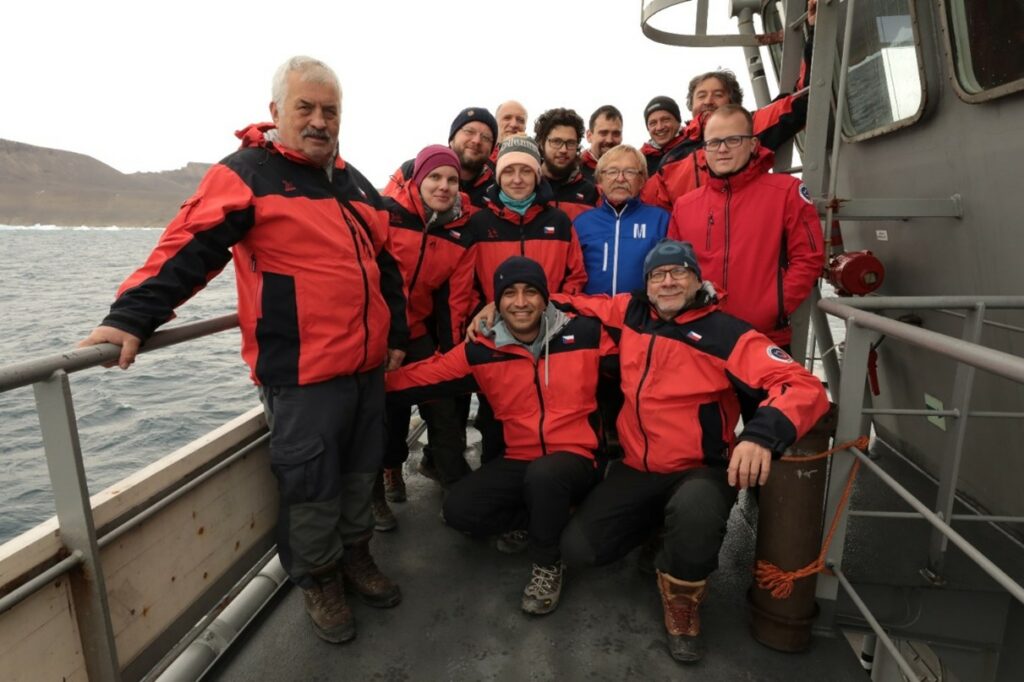
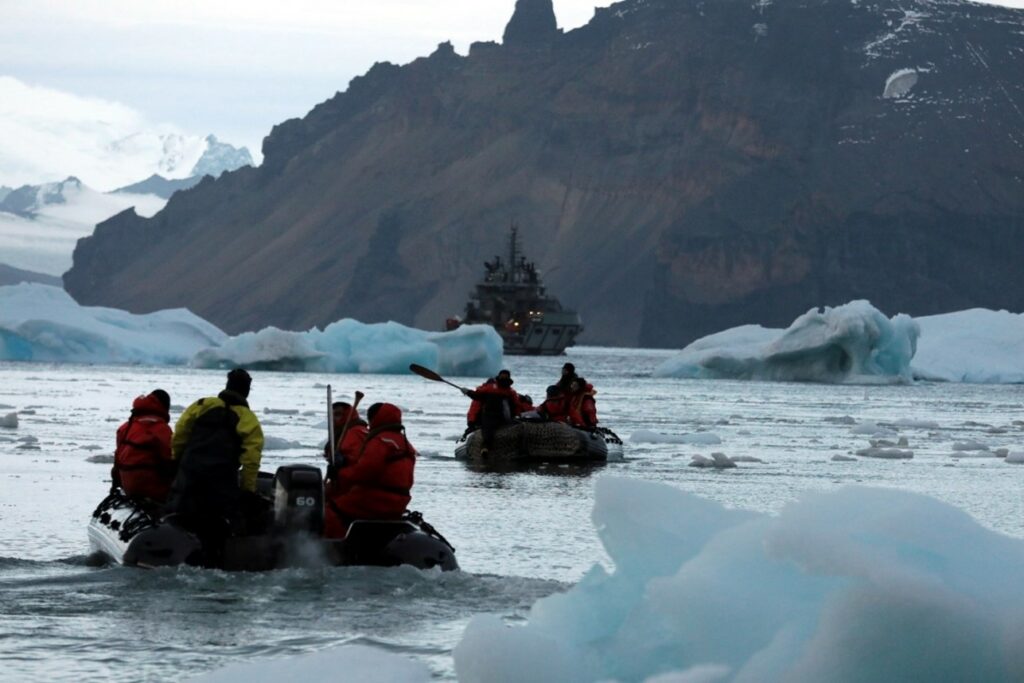
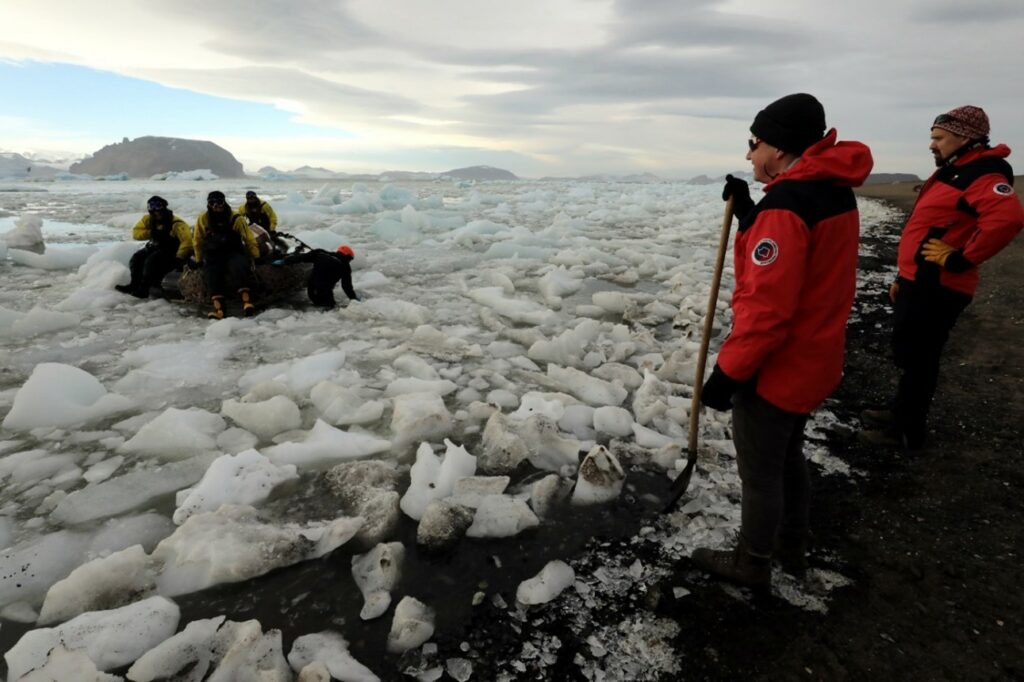
The following day, we started our fieldwork, which primarily consisted of geophysical surveys and the installation of a new A-ERT system.
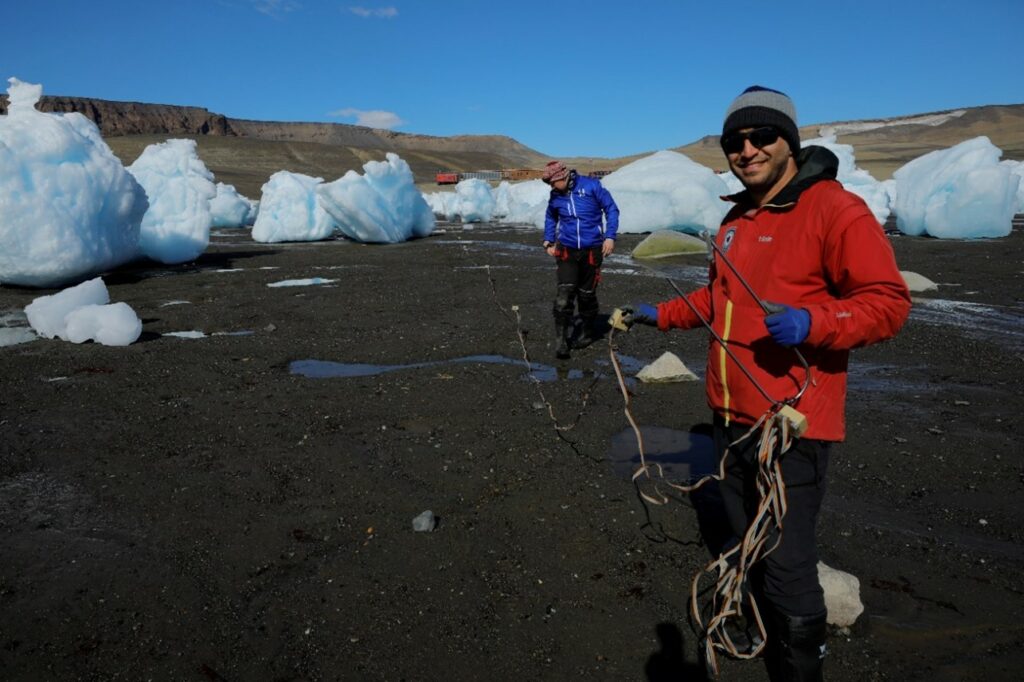
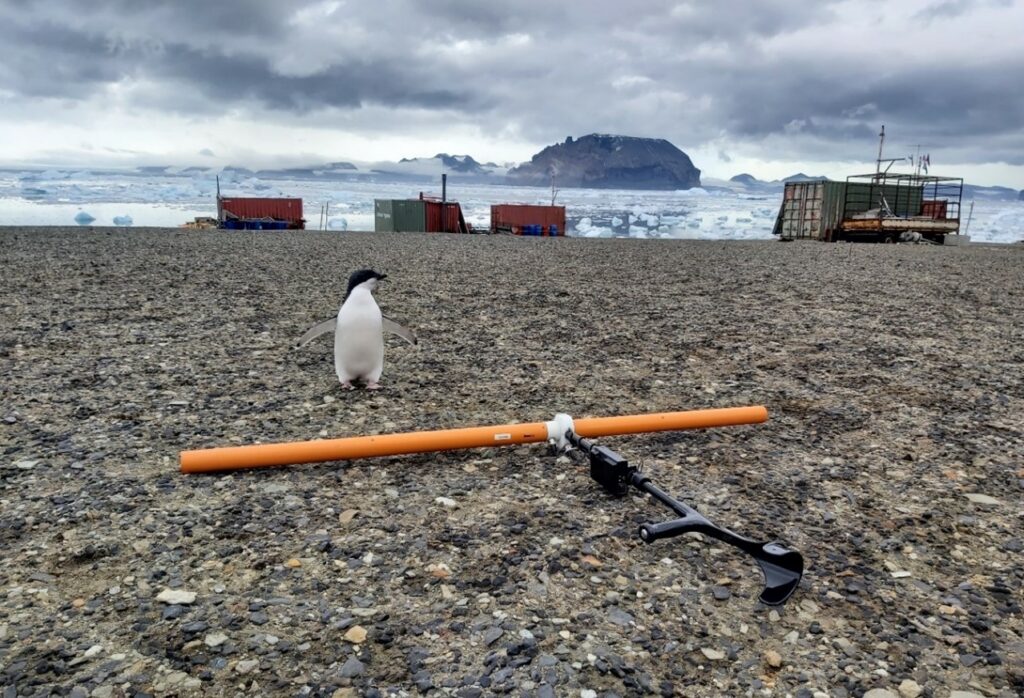
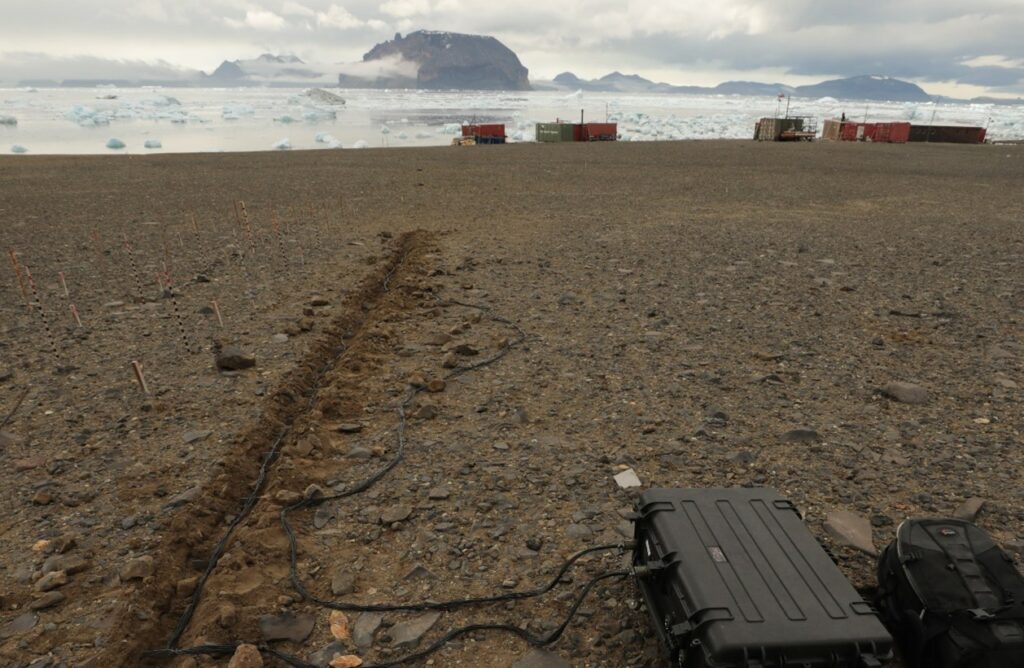
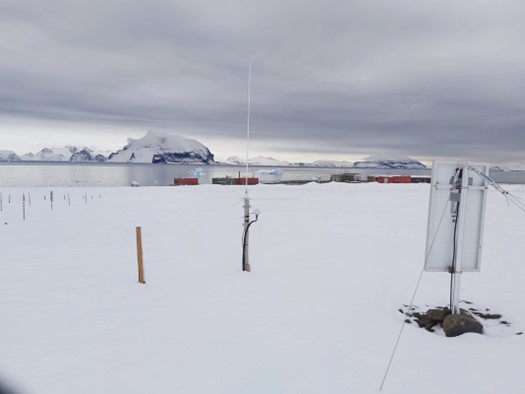
The weather on James Ross Island exhibited rapid fluctuations, shifting from sunny, calm, and warm days with temperatures exceeding 10°C – perfect for fieldwork without a jacket – to cold, snowy, and windy conditions. These harsh conditions often required us to remain indoors at the station or go out briefly to visit the site, emphasising the unpredictability of polar weather. The latter half of the season was particularly challenging, marked by extreme weather conditions.
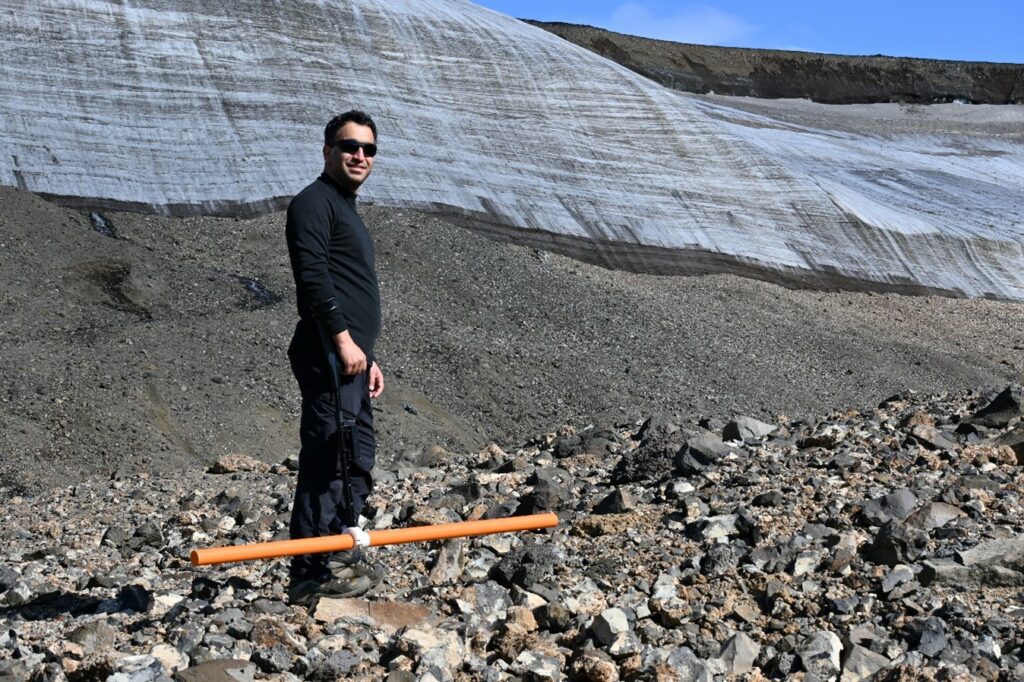
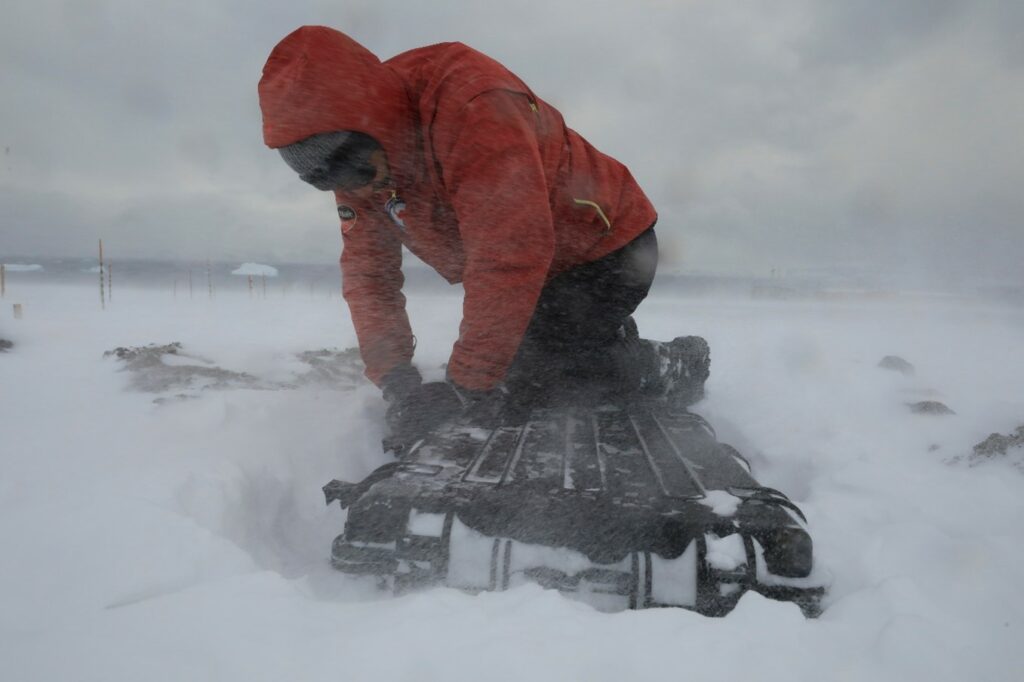
One of the main challenges we faced during this visit was a logistical change in plans by the Chilean vessel that was scheduled to pick us up. They decided to move our departure forward by almost 10-15 days, opting to begin their mission with us. This decision was driven by the logistical complexities involved in reaching James Ross Island, surrounded by ice, encouraging the captain to prioritise the most challenging tasks first. As a result, we had significantly shorter windows to complete our fieldwork, with little advance notice.
To complete the installation of the A-ERT system on such a short notice, we had to adapt to working in harsher weather conditions or during the night when the weather was calmer. Despite these challenges, we were able to accomplish this task, thanks to the proximity of the Mendel Station to the monitoring site. And the A-ERT system was installed successfully and completely before leaving!
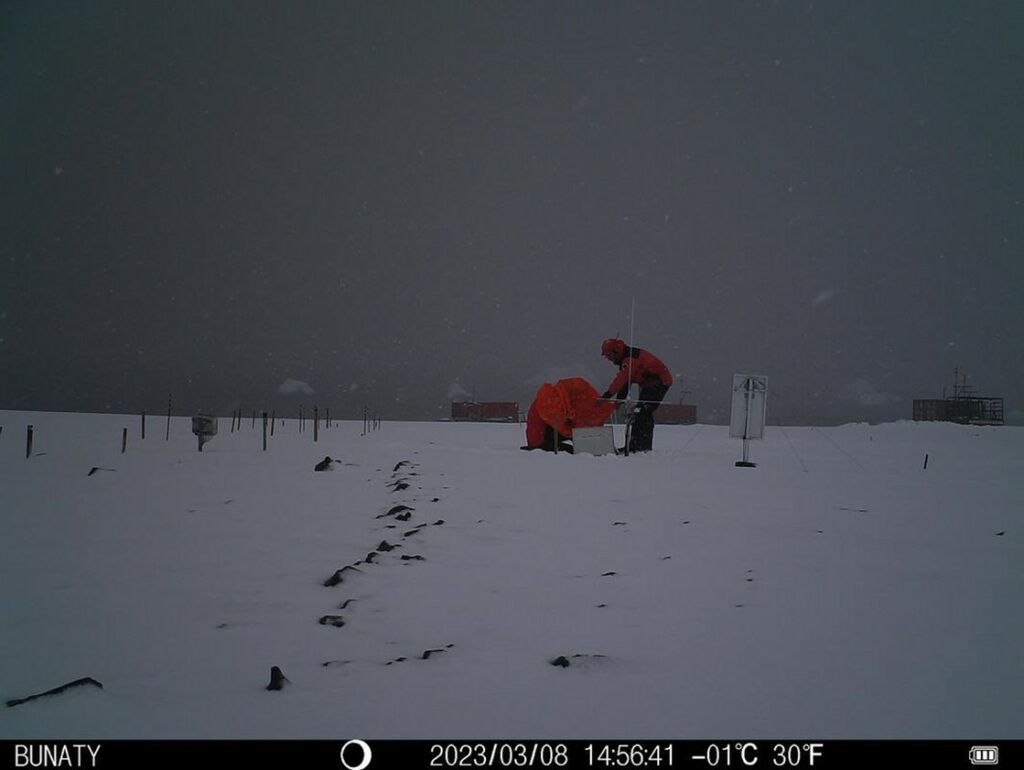
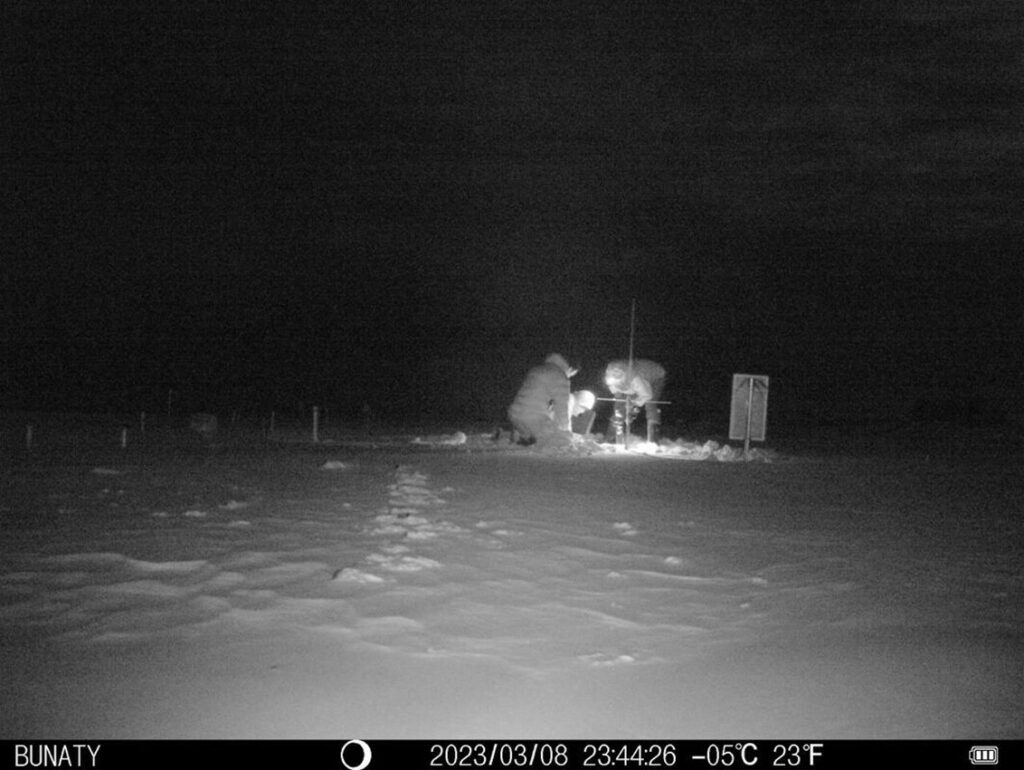
Despite being occupied with fieldwork, we found great pleasure in the breathtaking and distinct environment of James Ross Island, surrounded by polar wildlife, ice, and icebergs! Additionally, I enjoyed the moments spent socialising with fellow scientists and technicians at the station, cooking meals together, and engaging in stimulating discussions.
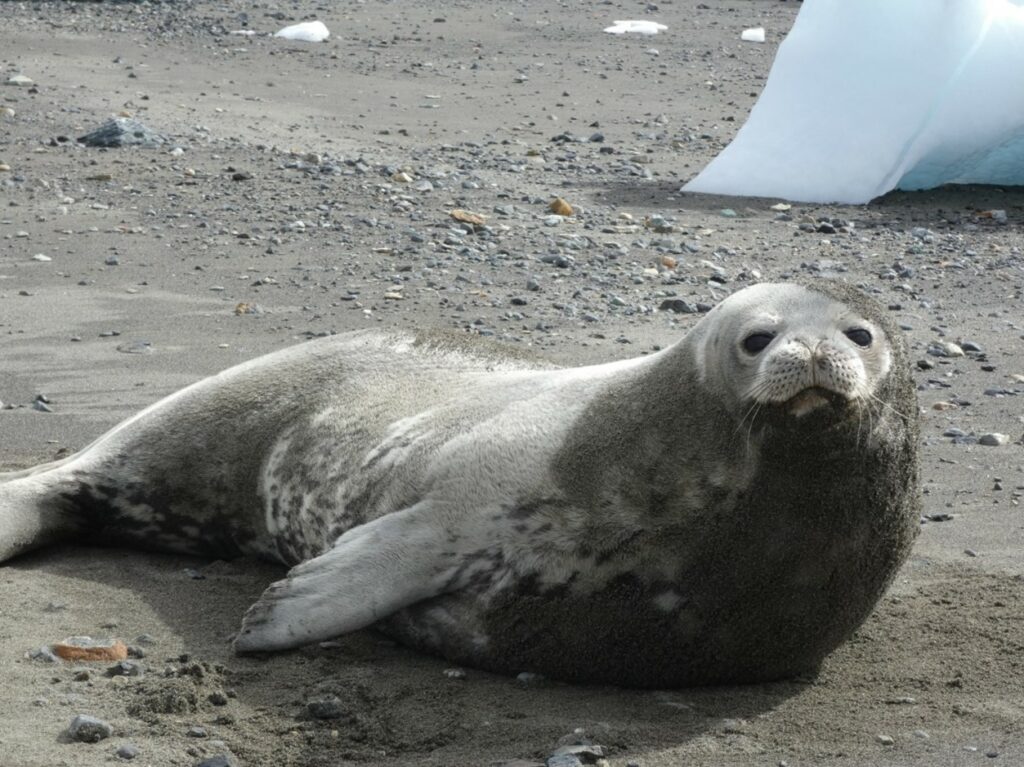
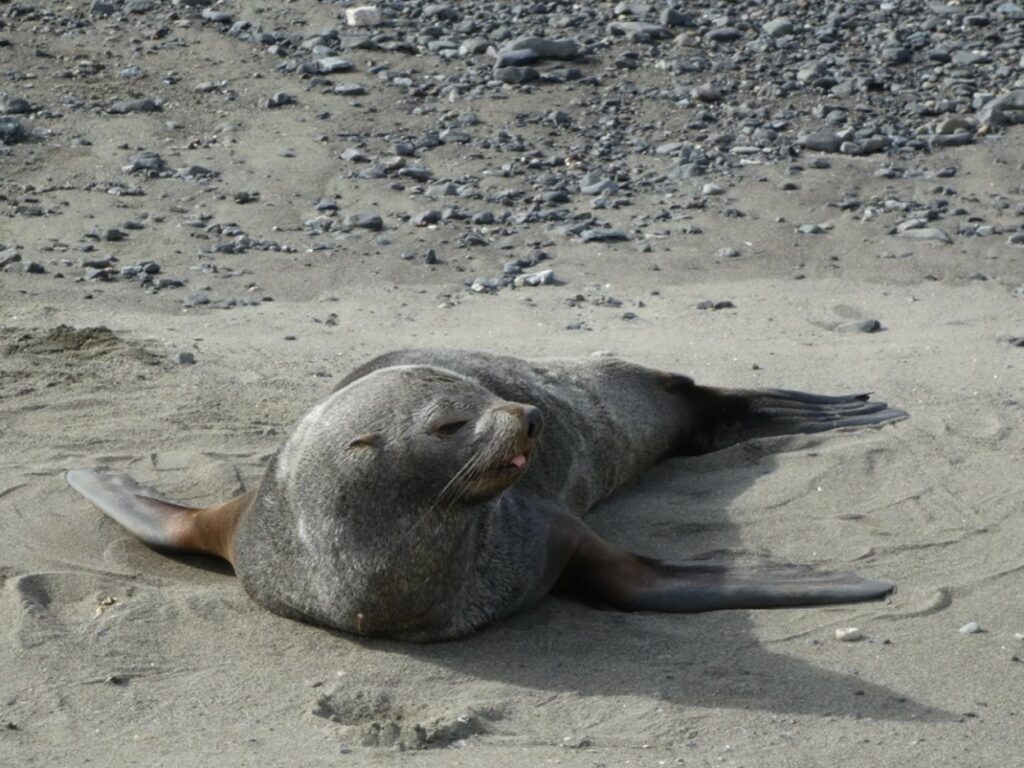
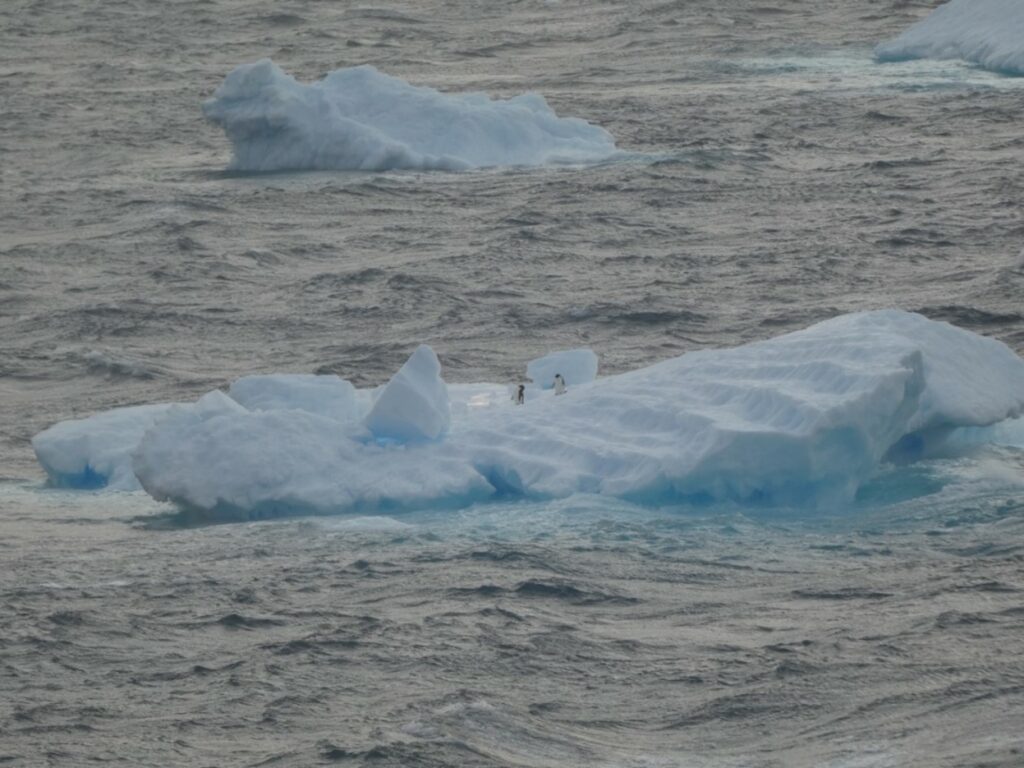
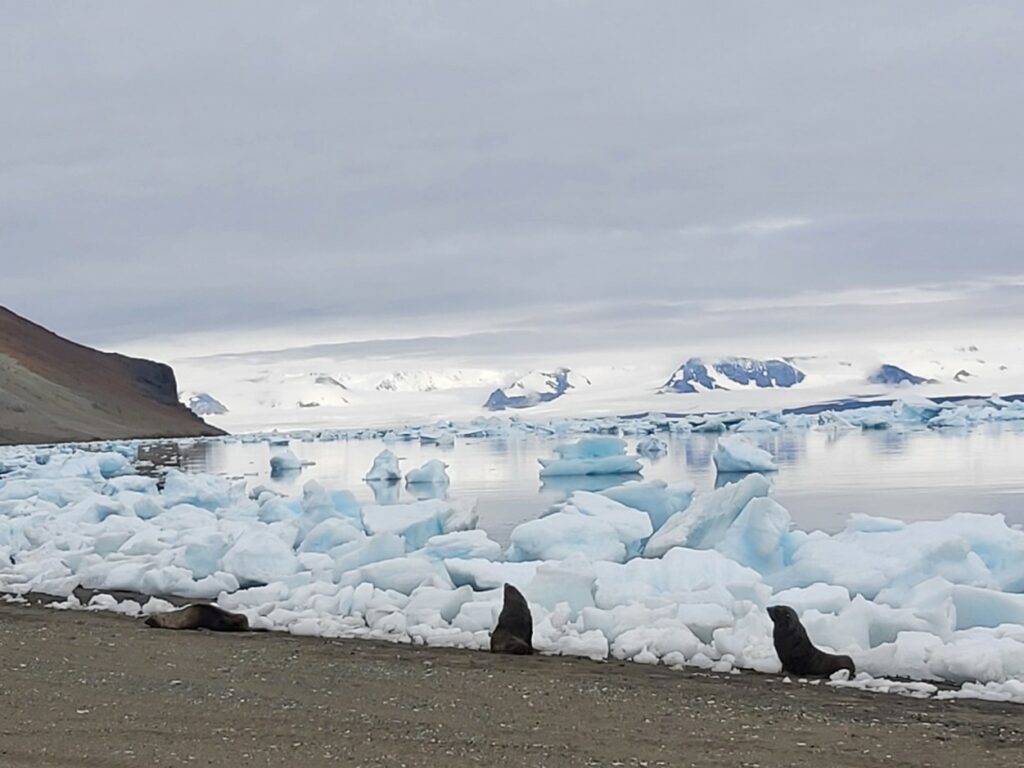

Our new adventure just began when the Chilean navy arranged to retrieve us. Due to logistical complexities arising from ice accumulation along the coastline and near the station, helicopters were dispatched from the vessel to transport us. It was truly an amazing experience to fly above the icebergs and land on the vessel.
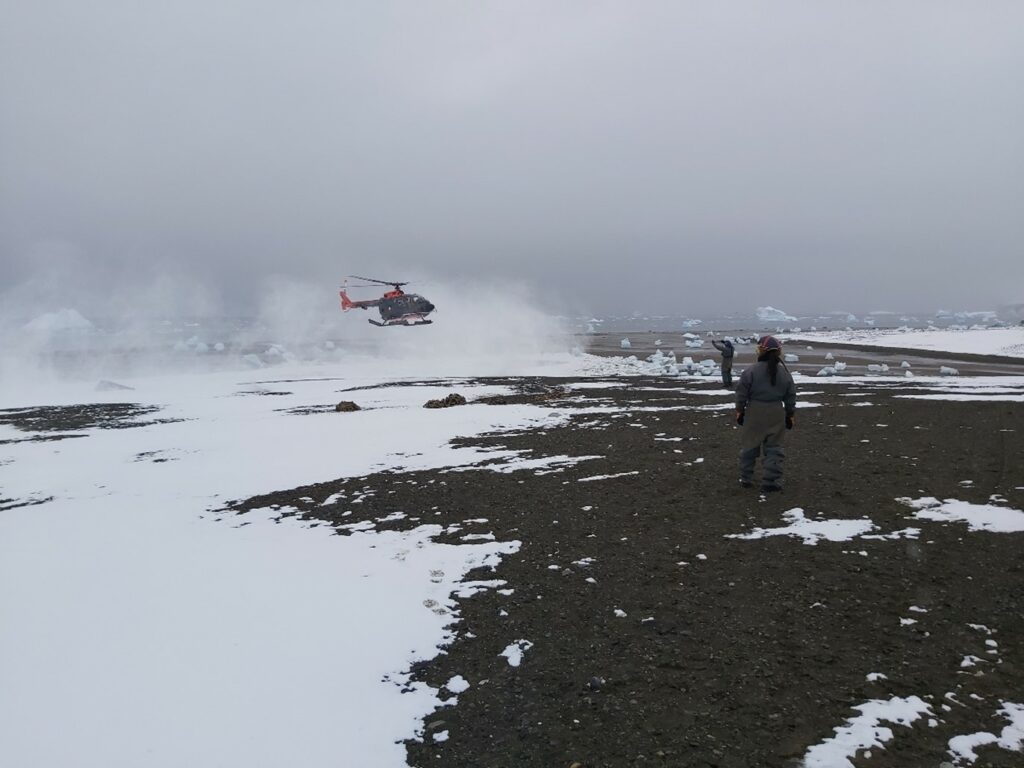
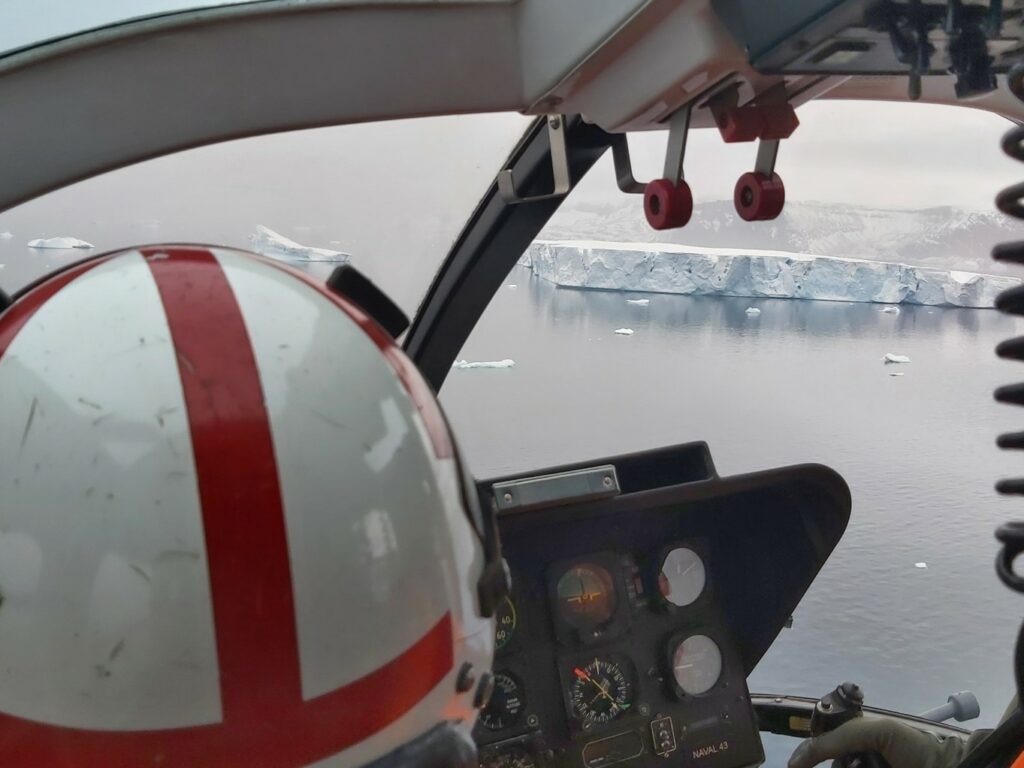
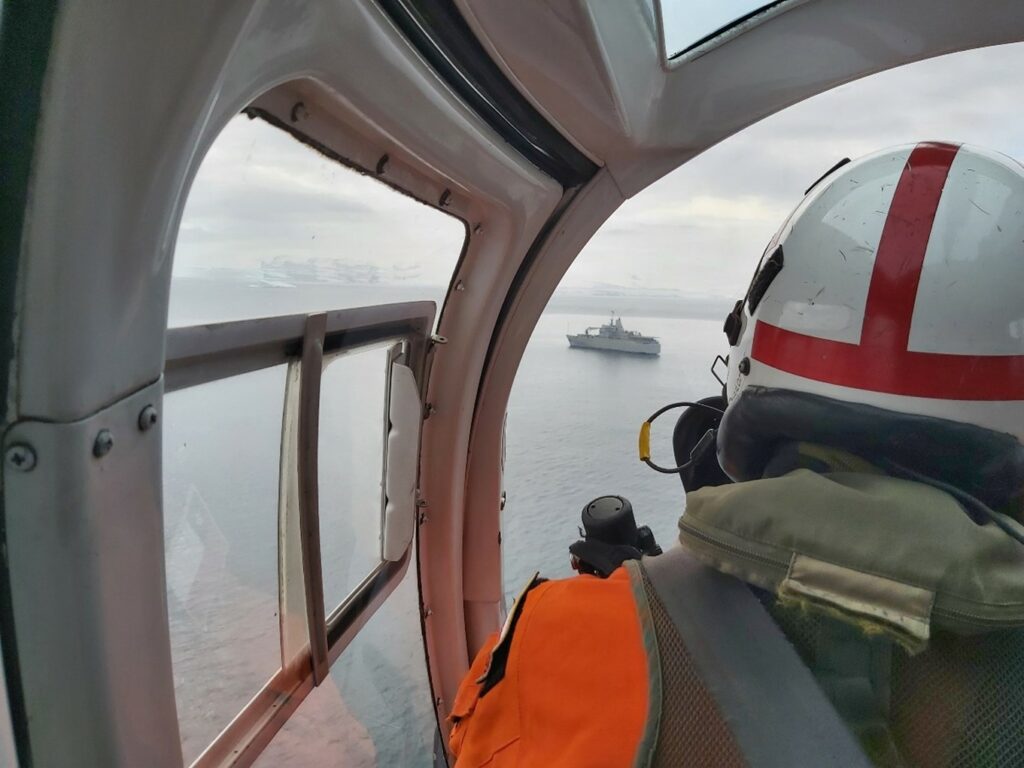
Since the vessel picked us up at the outset of their mission, we found ourselves staying on board for an additional 10-15 days beyond our initial schedule. This extended period afforded us the chance to explore several new destinations before returning to Punta Arenas, including Base Yelcho and Port Lockroy. Once all logistical missions were accomplished and everyone was picked up from various stations, our journey took us to King George Island to cross the Drake Passage, notorious for its unpredictable and often severe weather conditions. Crossing the passage presented a significant challenge. Due to adverse weather, we were compelled to remain on board until the passage became safe enough to navigate. The poor weather persisted longer than anticipated, resulting in a prolonged delay of 10 days on the vessel until the captain deemed it safe for the sailors to commence our return journey to Punta Arenas. That means that we had to stay about three weeks on board before being able to return to South America.
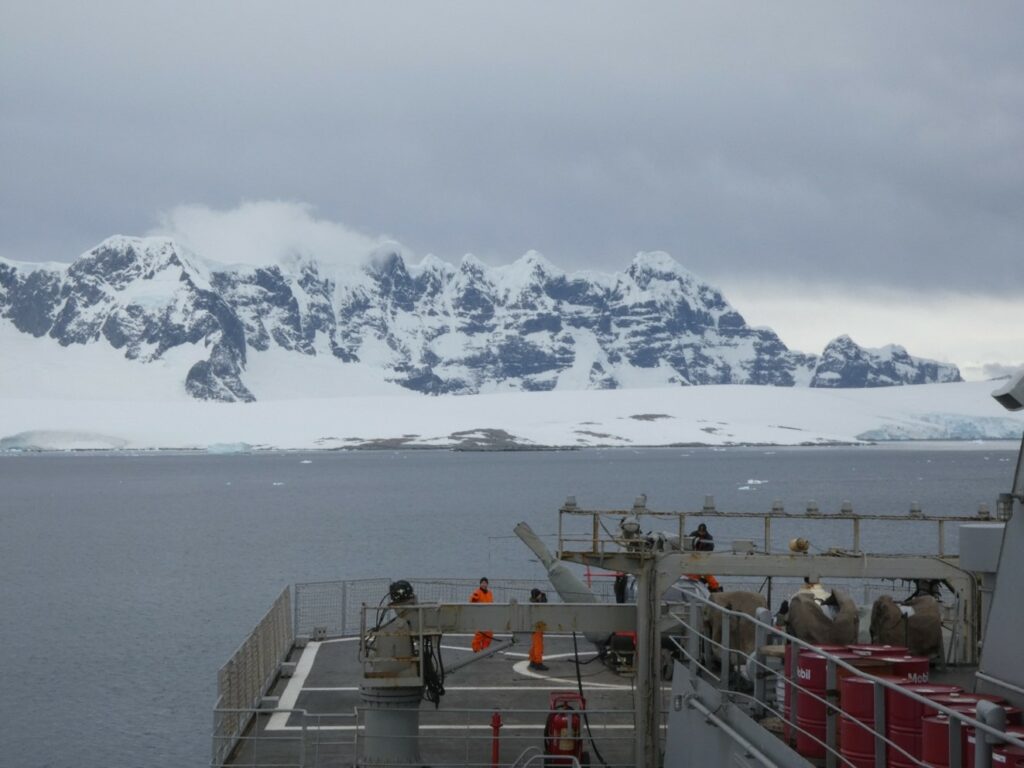
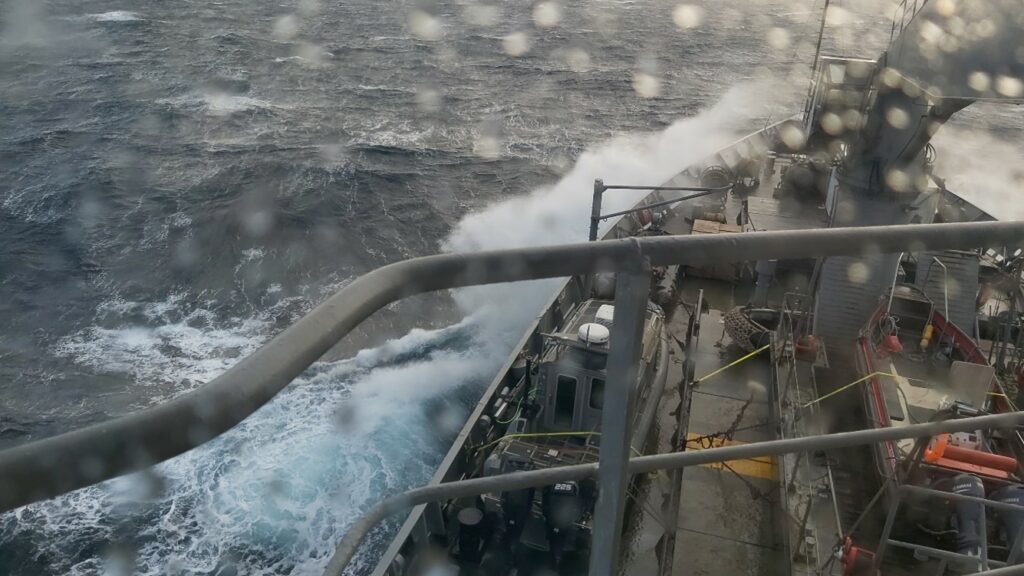
Reflecting on the remarkable aspects of this field trip, our experiences on James Ross Island were truly exceptional. Despite encountering logistical challenges and unpredictable weather conditions, our team demonstrated remarkable adaptability in achieving our objectives. Furthermore, the unforeseen extension of our stay on the vessel provided us with the opportunity to explore new destinations, enriching our understanding of the region and its unique features. However, waiting for suitable weather conditions to cross the Drake Passage meant enduring additional 10 days on board in the same location, with limited activities and little to occupy our time. This period of waiting presented its own set of challenges, testing our patience and resilience as we eagerly awaited a green light from the capitán to continue our journey. Overall, this expedition not only expanded our scientific knowledge but also left us with unforgettable memories and invaluable lessons in overcoming adversity in polar environments.
Special thanks to Filip Hrbacek, our project partner and expedition leader from the Czech Antarctic Research Programme, who collaborated with us on this project within the ERT-PERM initiative and organized all stages of the fieldwork to ensure its success. Additionally, sincere appreciation goes to Christian Hauck, the project coordinator of ERT-PERM, for his invaluable contributions to scientific discussions and administrative arrangements for the installation of the A-ERT system on James Ross Island.
Mohammad Farzamian is an environmental geophysicist at the University of Lisbon in Portugal. His field trip took place between January and April 2023 with financial support of an SPI Technogrant in the context of the ERT-PERM project lead by Christian Hauck from University of Fribourg.
- Read more about the ERT-PERM project